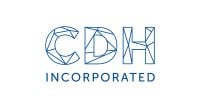

Director, legal, Middle East and Africa | Worley



Jolene Anne Kruger
Director, legal, Middle East and Africa | Worley
Team size: Seven
What are the most significant cases and transactions that your legal team has recently been involved in?
Worley is a globally recognised engineering company specialising in delivering high-calibre engineering projects in the fields of resources, energy, and chemicals, with a central focus on sustainability. Within Worley, our legal team is dedicated to the meticulous negotiation of contracts with our clients, aiming to establish terms that facilitate an equitable distribution of risk aligned with the scope of work.
In our pursuit of contractual agreements, we collaborate closely with key internal stakeholders to ensure a comprehensive understanding and documentation of Worley’s risks. In cases where negotiation does not fully address these risks, we work to implement mitigation measures that effectively minimise potential negative impacts on the business.
Recent successful negotiations undertaken by our legal team include an EPCM Mining Project in South Africa, potentially generating revenue of AU$23m, and a concept study framework agreement in Oman, with an anticipated revenue of AU$30m. We have also been involved in technical support services in the United Arab Emirates, resulting in revenue of over AU$ 300,000, as well as a detailed design for a FEED project in Qatar, contributing to revenue of US$42m.
This work underscores our commitment to robust contract negotiations and risk management, ensuring the success and sustainability of Worley’s endeavours.
Looking forward, what technological advancements do you feel will impact the role of in-house legal teams in the future the most? Which have you found most useful in your legal team?
The rise of Artificial Intelligence (AI) in recent years has brought notable changes to the legal field, particularly in areas such as legal research and discovery. These developments are impacting how legal teams operate, offering potential benefits in terms of efficiency and workload management.
In-house legal teams, often contending with limited resources and heavy workloads, stand to gain from AI integration. Tasks that are repetitive and administrative can be automated, freeing up time for more complex legal work. This shift in focus has the potential to enhance overall output, both in terms of quantity and complexity.
At Worley Legal, we are already leveraging AI for targeted legal research as a supplementary tool, seeking second opinions on specific aspects. Looking forward, we are actively exploring various AI platforms globally to enhance our operational efficiency. This pragmatic approach aligns with our commitment to staying current with legal innovation.
In navigating this era of AI integration, the collaboration between human expertise and AI emerges as a practical means to achieve greater efficiency. It is not solely about adopting technology but strategically utilising it to enhance legal service delivery. In this context, we aim to strike a balance between tradition and innovation, leveraging AI to shape the future of legal practice.
How do you suggest in-house lawyers build strong relationships with business partners?
In the realm of corporate dynamics, the synergy between legal professionals and key business stakeholders emerges as a pivotal force, shaping not only the success of a business but also the efficacy of in-house legal practitioners. There are three pivotal facets contributing to this intricate relationship.
Firstly, holistic business insight. Thriving in-house lawyers navigate the corporate landscape with finesse, possessing a profound understanding of its intricacies. This depth of insight allows them to intricately align legal guidance with the ever-evolving needs of business partners and overarching objectives. This requires active collaboration with diverse teams, spanning business development, finance, engineering (in my specific context), and other pivotal departments.
Second, cultivating approachable partnerships. At the core of a robust relationship with business partners lies accessibility, practicality, and an authentic receptiveness to diverse viewpoints. Approaching legal counsel with an open mind and considering input from all stakeholders before offering guidance nurtures an atmosphere of collaboration and mutual comprehension.
Importantly, in-house departments should be perceived as enablers of solutions rather than obstacles. Transforming the narrative from hindrance to ally is crucial in averting potential circumvention and conflicts. A strategic alignment that positions legal expertise as an integrative force within the organisational fabric enhances overall efficiency and concord.
In essence, the success of an in-house lawyer is intimately connected to their adept navigation, collaborative prowess, and meaningful contributions within the broader business landscape. By fostering transparent communication channels, embracing a solution-oriented mindset, and framing legal departments as essential problem-solving entities, businesses can cultivate an environment where legal and business objectives harmonise seamlessly, propelling the organisation towards enduring success.